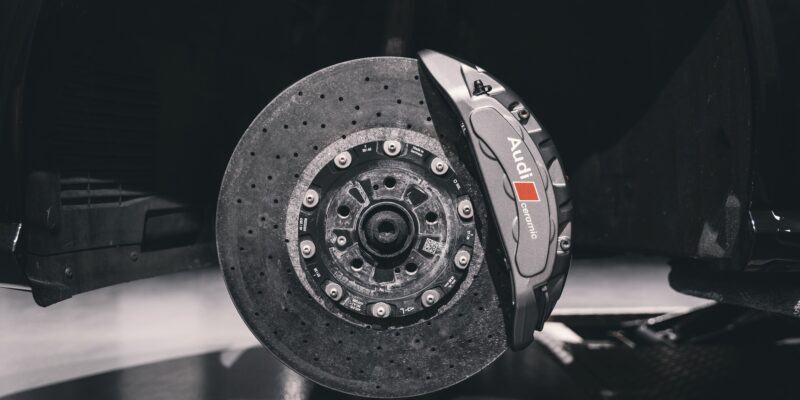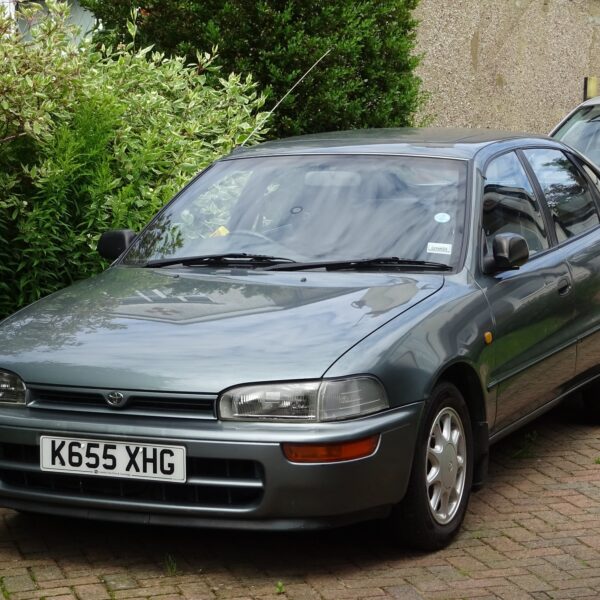Anti-Lock Braking System: How It Works
Nowadays consumers have access to a variety of driver assist features that greatly improve passenger safety. While forward collision warning and adaptive cruise control are some of the most common safety features, in recent years, automakers have spent significant time and energy perfecting the anti-lock braking system (ABS for short). In this post, we’ll outline the basics of ABS technology and the pros and cons of adding this feature to your next car purchase.
How does it work?
Anti-lock braking systems are designed to control and stabilize a vehicle during emergency braking. As the wheels lock up and the car slows down, the driver is given the ability to steer clear of imminent trouble if necessary. Essentially, ABS brakes prevent your wheels from skidding as you come to an abrupt stop. And broadly speaking, there are two main benefits to ABS brakes:
- Your vehicle comes to a halt faster. Should you come into contact with a potential collision, your car will anticipate the crash ahead of time and do its best to avert a crash.
- You’ll maintain maximum wheel grip when ABS brakes are initiated. Compared to regular brakes, ABS brakes won’t lock up nor increase your chances of losing control of the vehicle.
The power behind anti-lock braking systems is its ability to act faster than the human reaction. In vehicles without ABS brakes, drivers tend to pump the brake pedals aggressively to avoid a potential hazard. With ABS brakes, drivers have an added layer of protection and less delay in preventing a crash.
What are the advantages of ABS?
As a whole, anti-lock brakes are extremely advantageous to car safety. In most cases, these systems are designed using conventional brake parts and either hydraulic or electrical and electronic components. Depending on the type of brake scheme an automaker chooses, the speed of ABS will vary. Yet most vehicles include the four wheels with separate sensors to effectively monitor and control optimal braking.
Here are the top reasons to value ABS brakes:
- Provide more stability during an emergency situation.
- Helps prevent a vehicle from spinning out of control.
- Manages wet and slippery surfaces adequately.
- The system is safe and effective (approximately 48% depending on the car and type of accident).
What are the disadvantages of Anti-lock braking system?
Although ABS brakes remain an asset to passenger safety, there are a few disadvantages to having this level of technology in your car. First off, it increases the overall cost of the vehicle. Which alludes you’ll pay more to have the protection that an anti-lock braking system offers. On top of that, maintenance costs may rise due to the complexities of ABS brakes. Because sensors are required on each wheel, the cost to repair calibration disruptions may have an impact on your wallet.
Does ABS work well on ice?
Unfortunately, anti-lock systems are not yet able to completely circumvent sliding or potential wheel lock ups on icy roadways. With winter temperatures reaching record-breaking extremes, it’s important for drivers to understand the limitations of ABS brakes. Although extremely helpful in most circumstances, as of now, they are not fully equipped to take on severe ice and snowy terrains. If you live in an area with these conditions, don’t rely solely on your anti-lock braking system to keep you safe.
Conclusion on anti-lock braking system
Overall, an anti-lock braking system makes your vehicle safer and better protected from a devastating collision. While advanced safety features often work congruently to keep passengers safe, ABS brakes are one of the most powerful car parts to have enabled in your car. In current times, automakers are racing to innovate an even better anti-lock system in an attempt to make this braking component a standard feature across the board.















Always seen the term “ABS” but never looked into it. This was a good article.